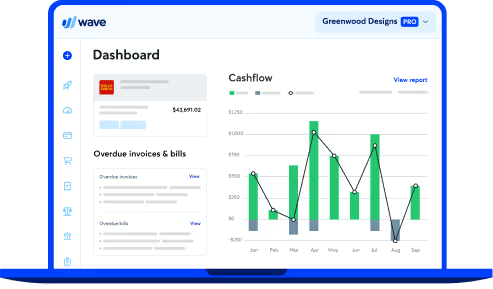
Business insurance: What it is and why you might need it
Business insurance: Your eyes may start to glaze over as soon as you read that. While insurance can be one of the more tedious aspects of running your freelance or small business, it’s an umbrella of protection that everyone should have but many don’t.
Data shows that 75% of businesses in the U.S. are underinsured, and 40% of small businesses don’t have insurance at all. But according to a 2017 report from insurance comparison platform Insureon, more than a third (35.2%) of businesses experienced an event last year that could have led to an insurance claim.
Although insurance isn’t necessary for all businesses, we’ll look at the ins and outs of business insurance—including the different types, what those plans usually cover, and some of their average costs. That way, it’s easier to decide if business insurance makes sense for your situation.
What is business insurance (and why you might need it)
Unlike the kinds of insurance you may be more familiar with, like health or car insurance, business insurance protects you from professional losses. It’s meant to safeguard your work and your equipment in the case of a catastrophe or disruption to normal business operations (i.e. it can help replace lost income if you have to shut down your biz temporarily).
The scope of business insurance coverage can be wide, depending on the type of policy you purchase. Business insurance can cover entrepreneurs from property damage; loss or damage to equipment like your laptop or camera gear; and legal liability in case a customer sues you because they were injured at your office.
Because every business is different, there’s no “one-size-fits-all” insurance policy. When you hand over your payment, more commonly known as a premium, you’re paying for coverage for a specific set of concerns. To figure out what kind of policy would work best for your business, let’s take a look at some policy options and what they cover.
Types of business insurance and coverage options
Because there’s a wide spectrum of freelance and small businesses out there, the insurance industry has created a wealth of options to accommodate those varying needs.
As with other types of insurance, not all types of business insurance are right for every kind of business. Entrepreneurs should do their research and be scrupulous when choosing the plan and insurance carrier that’s right for them.
While freelancers and small business owners have a wide variety of plans to choose from, there are a few common types that protect them from most types of losses.
Liability insurance
One of the most common types of insurance you can purchase to protect your business covers losses due to your own mistakes and errors.
Based on that aforementioned Insureon report, the most common incident small business owners run into is client issues. Almost a quarter (22.2%) of businesses surveyed said they had a client complaint or contract dispute that would have qualified for an insurance claim.
Liability insurance covers freelancers and small business owners for several different scenarios, including:
- Errors in your work. If you offer professional services, mistakes can cost you or your clients money. For example, if you’re a bookkeeper and you enter an error on a client’s paperwork, you would be responsible for any losses.
- Failure to perform. Many industries have professional standards you’re legally required to meet. Failure to meet those standards can open entrepreneurs up to business losses or even lawsuits. Fortunately, liability insurance can cover lawyer fees and court costs in the case of any legal action.
- Injuries or theft on your property. If you have an office or a commercial property where clients or customers visit, it’s wise to have insurance in the case of injuries or theft. A customer could slip and fall, or their property could be damaged or stolen. In either case, a liability policy prevents you from having to foot the bill.
While the cost for a liability policy will depend on your industry, profession, and your geographic location, you don’t have to break your budget to get coverage. Some basic policies start as low as $21 per month.
Business interruption insurance
As much as you may plan for every scenario, unexpected events will come up (and inevitably at the worst possible time). If something unexpected happens and you need to temporarily suspend business operations, that’s a hit to your income. And even though a natural disaster or a flood in your office building may mean you need to shut down for the time being, your bills will continue to roll in.
That’s where business interruption insurance comes in. This kind of policy protects you and your business in the case of such unexpected events. Business interruption insurance covers costs like:
- Lost income. When you’re forced to suspend operations, your revenue will suffer. A business interruption policy will help you stay afloat while you get your business back on track.
- Operational expenses. Whether it’s loan payments, vendor costs, or employee wages, business interruption insurance covers all those typical bills that come up while your business is out of commission.
- Rent/relocation. If you need to temporarily shift your office to a new building, this policy can help cover those moving costs.
As with liability insurance, your industry and business location will affect the cost of a business interruption policy. However, business resource FitSmallBusiness estimates that this type of policy on its own costs around $750 to $1,200 per year.
Home-based business insurance
If you run a business out of your home (we’re looking at you, freelancers), check your existing home insurance policy. Chances are that this policy won’t protect your business should anything unexpected occur. But home-based business insurance can fill that gap.
Home-based business insurance can offer peace of mind to the estimated 57.3 million freelancers in the U.S. And many of those freelancers are running their businesses from their own home.
Home-based business insurance covers the following in case of loss or damage:
- Work equipment. Picture your computer, printer, and more. Would you be able to run your biz without your tools?
- Inventory. If you sell physical products out of your home and something happens to your stock, you could take a huge financial hit. But this kind of policy covers all those products you’re storing in your spare bedroom.
- Home office. If your home office is destroyed in a fire, this kind of policy will help you replace furniture and materials.
Freelancers and other home-based business owners can expect to pay about $425 per year for this protection—which breaks down to about $35 per month.
Insurance by the numbers: A note about costs
We get it—running a business is a pricey endeavor. On their own, the costs of all these policies can add up over the course of a year. But many insurance carriers offer discounts for businesses that bundle multiple policies with them.
And, depending on your business and its unique needs, the cost of carrying a comprehensive policy can far outweigh the out-of-pocket expenses for a customer injury (an estimated $20,000 for a slip and fall incident, for example), office fire, or another unexpected issue.
Moving forward with business insurance
Weighing your options for business insurance can be an overwhelming (and sometimes boring) task.
However, finding the right protection for your small business can make the difference between success and staying afloat should something unexpected happen.
(and create unique links with checkouts)
*While subscribed to Wave’s Pro Plan, get 2.9% + $0 (Visa, Mastercard, Discover) and 3.4% + $0 (Amex) per transaction for the first 10 transactions of each month of your subscription, then 2.9% + $0.60 (Visa, Mastercard, Discover) and 3.4% + $0.60 (Amex) per transaction. Discover processing is only available to US customers. See full terms and conditions for the US and Canada. See Wave’s Terms of Service for more information.
The information and tips shared on this blog are meant to be used as learning and personal development tools as you launch, run and grow your business. While a good place to start, these articles should not take the place of personalized advice from professionals. As our lawyers would say: “All content on Wave’s blog is intended for informational purposes only. It should not be considered legal or financial advice.” Additionally, Wave is the legal copyright holder of all materials on the blog, and others cannot re-use or publish it without our written consent.


























